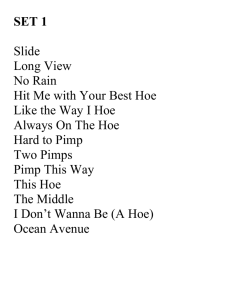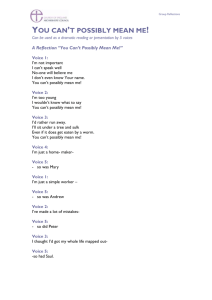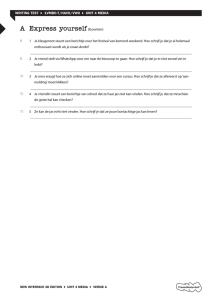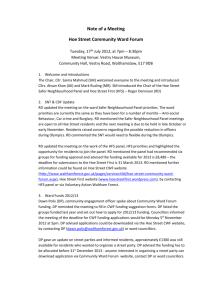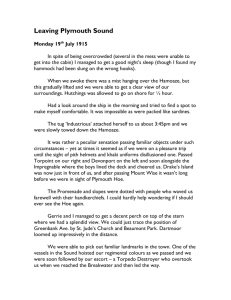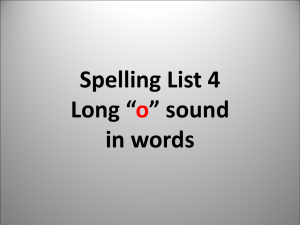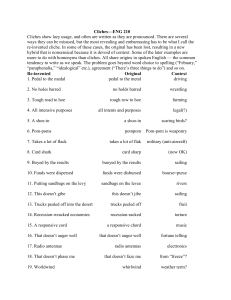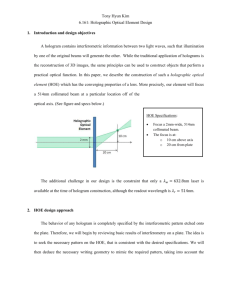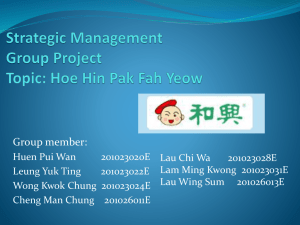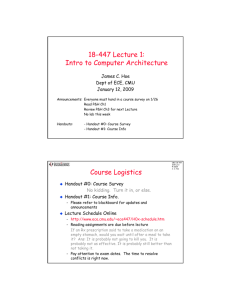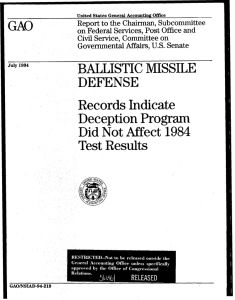48. Wolfgang Leyk_CF_Paper 2_SE2010
advertisement
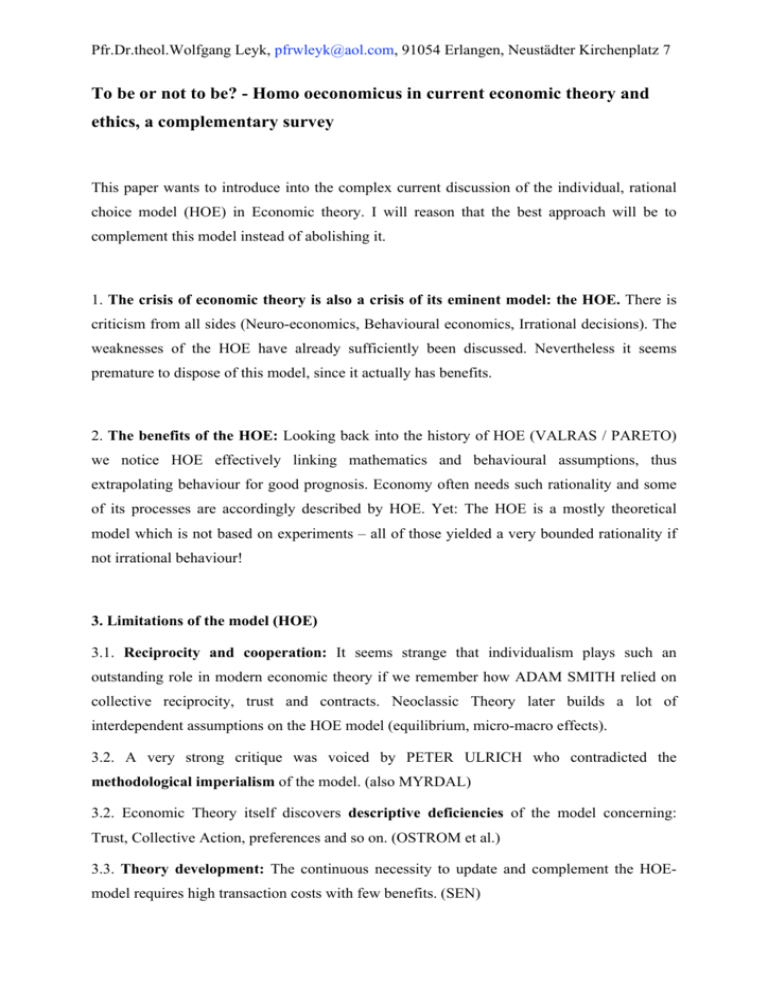
Pfr.Dr.theol.Wolfgang Leyk, pfrwleyk@aol.com, 91054 Erlangen, Neustädter Kirchenplatz 7 To be or not to be? - Homo oeconomicus in current economic theory and ethics, a complementary survey This paper wants to introduce into the complex current discussion of the individual, rational choice model (HOE) in Economic theory. I will reason that the best approach will be to complement this model instead of abolishing it. 1. The crisis of economic theory is also a crisis of its eminent model: the HOE. There is criticism from all sides (Neuro-economics, Behavioural economics, Irrational decisions). The weaknesses of the HOE have already sufficiently been discussed. Nevertheless it seems premature to dispose of this model, since it actually has benefits. 2. The benefits of the HOE: Looking back into the history of HOE (VALRAS / PARETO) we notice HOE effectively linking mathematics and behavioural assumptions, thus extrapolating behaviour for good prognosis. Economy often needs such rationality and some of its processes are accordingly described by HOE. Yet: The HOE is a mostly theoretical model which is not based on experiments – all of those yielded a very bounded rationality if not irrational behaviour! 3. Limitations of the model (HOE) 3.1. Reciprocity and cooperation: It seems strange that individualism plays such an outstanding role in modern economic theory if we remember how ADAM SMITH relied on collective reciprocity, trust and contracts. Neoclassic Theory later builds a lot of interdependent assumptions on the HOE model (equilibrium, micro-macro effects). 3.2. A very strong critique was voiced by PETER ULRICH who contradicted the methodological imperialism of the model. (also MYRDAL) 3.2. Economic Theory itself discovers descriptive deficiencies of the model concerning: Trust, Collective Action, preferences and so on. (OSTROM et al.) 3.3. Theory development: The continuous necessity to update and complement the HOEmodel requires high transaction costs with few benefits. (SEN) Pfr.Dr.theol.Wolfgang Leyk, pfrwleyk@aol.com, 91054 Erlangen, Neustädter Kirchenplatz 7 3.4. Neglected Topics: Economic sustainability issues (strategies in the long run) are not covered by a short-term utility model. The importance of personal preferences is neglected. Social or collective choice issues are not dealt with (SEN / ARROWS) The model is only applicable in “core economics”. 4. Limitations of the current HOE-criticism: It has – in a wider context – to be critically reviewed. 4.1. Alternative Models (especially behavioural economics) with their claim for exclusiveness are replacing one theory-monopoly with another. (AKERLOF / SHILER – ALDRED – THALER SUNSTEIN et al.) 4.2. Alternative models are weaker descriptions of rational behaviour which is often found in economy. Economy is not always “freakonomics”. 4.3. Alternative concepts often are disguised utility-maximizing concepts on other levels. 5. Complementing HOE The conclusion is that the HOE best should be complemented. Multi-prespective reflection (FRASER) could cross-reference HOMO OEC: with e.g. HOMO SOCIOLOGUS and off course HOMO ETHICUS. A good example for multiple perspectives can be provided by the way NANCY FRASER / HONNETH are discussing parity and justice-issues. An important contribution about linking individual choice to contexts is also found in economic sociology (MAURER/SCHMID, FLIGSTEIN) 6. Conclusion As I have shown there is justified and diverse criticism of the HOE Model. It is open for discussion how ethics might be linked to model and if so – what effect this will have on ethics themselves.
